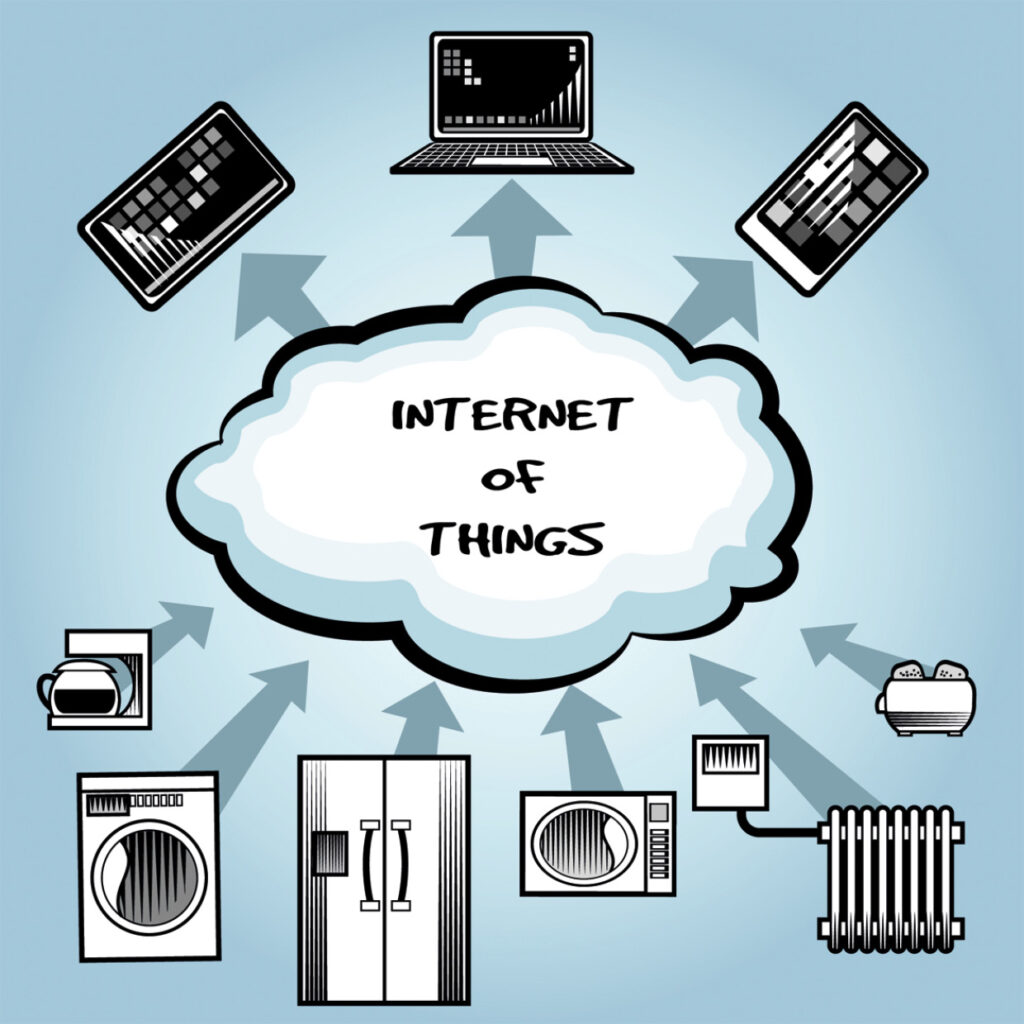The impact of the internet of things on daily life matters of enterprises
We are connected to the internet and fully dependent on it for many things. It is currently unthinkable to work without internet access. When the internet becomes unavailable, companies do their work offline and businesses that depend on technology do not produce at all in this period. Cloud applications or systems that are network-dependent, although presenting numerous advantages, have this bottleneck from connection dependence.

The internet of things (internet of everythings) raises this need for connection to the next level, because it allows you to connect the most varied types of things, like sneakers, appliances, devices, electronic gadgets, anything, to internet access. Through tiny sensors that capture information about their use and send it to the network, these Gadgets can enhance their use to connect to other devices.
The state-of-the-art Gadgets, considering the internet of things, are smart watches (Apple Watch) and the augmented reality glasses, like Rift, developed by Oculus VR, which was sold to Facebook for BRL 2 billion. Google, one of the leading companies in the development of the internet of things, opted for a strategic retreat with respect to Google Glass, because this technology, as tablets in the 90s, is still way ahead of its time, and it requires some adjustments to become a product that really has application in people’s everyday life.
For companies, in addition to this new market that opens for placing technology on everyday tools/appliances, there is now the demand to optimize these applications to contribute to employees’ productivity during work hours. Moreover, it is a concern of most organizations that the excess of connectivity doesn’t distract their employees, which creates an expectation for some kind of control of these devices during office hours. In this article we present some applications of the internet of things in processes improvement in some business segments. Check below:
Self-driving cars
Google has been developing a series of disruptive applications to take advantage of the internet of things’ Buzz. One of the most anticipated products are their autonomous cars. Self-driving cars are their big bet to avoid human error controlling cars and to improve people’s lives through a safer and controlled traffic. The State of Nevada in the United States was the first to approve a law that allows cars without drivers to circulate on public highways. Predetermined areas were created so that Google novelty can be tested before officially meeting the market.
For companies that depend on logistics and transportation that is an innovation that will allow them to have greater control over their loads, which enables a better planning and better measuring risks. This is a market that suffers very much from human error and that can be positively impacted through the internet of things. Tracking a product delivery to a client’s home can become easier with the internet of things. Constantly sending data on the path, product packaging and transportation, the company has full control over the delivery quality and ensures customer satisfaction.
Smart Packaging
Packaging with information about price is already used today. With the internet of things, the trend is that more and more information is connected to packaging. The expiration date is an example of information which can be better controlled and barred at the cashier if the product is expired. Information on the appropriate product packaging can generate “alerts” if a package is at a temperature above the one described on its package.
Retail companies can also make use of specific promotions, according to the product purchased by the customer, before the customer pays for it. The cashier can make a specific offer based on the use correlation from products placed on customers carts. This type of action is already done on electronic commerce and, with the internet of things, the tendency is to improve more and more. Payment via mobile phone, via NFC technology, can decrease people’s dependence to pay. This type of application would improve not only the retail sector, but also any sector that has problems with queues for payment.
Understanding behaviors
Understanding customers is one of the biggest challenges of businesses, and the internet of things can help solve many issues. In an event, for example, you can monitor the entrances and exits of each participant and estimate the period of concentration of people, thus optimizing lectures to give this time that people need to take a break and continue to participate. Similarly, you can map the most visited booths and determine which ones are the greatest interests of a particular public.
Smart Appliances
Maintaining relationships with customers is much easier when you know what they need and, with the internet of things, you will surely know. Today, there are appliances like smart stoves and refrigerators that send information about people’s consumption habits for companies which, from these data, send exclusive materials to customers, such as custom recipes and even purchase lists. With that, companies make deals, because they earn an additional product: information on their customers. For example, companies that sell refrigerators can have agreements with supermarket business companies. Through the exchange of information between the refrigerator and the product packagings in it, it may be possible to identify consumer habits and better understand clients, to sell products best suited to their profiles.
The future
The internet of things still raises many expectations and promises, but we will only be sure of its potential when it is fully functioning in our lives. According to IDC – International Data Corporate, up to 2020 we will have 212 billion of things connected to the internet, and this is just the beginning.

